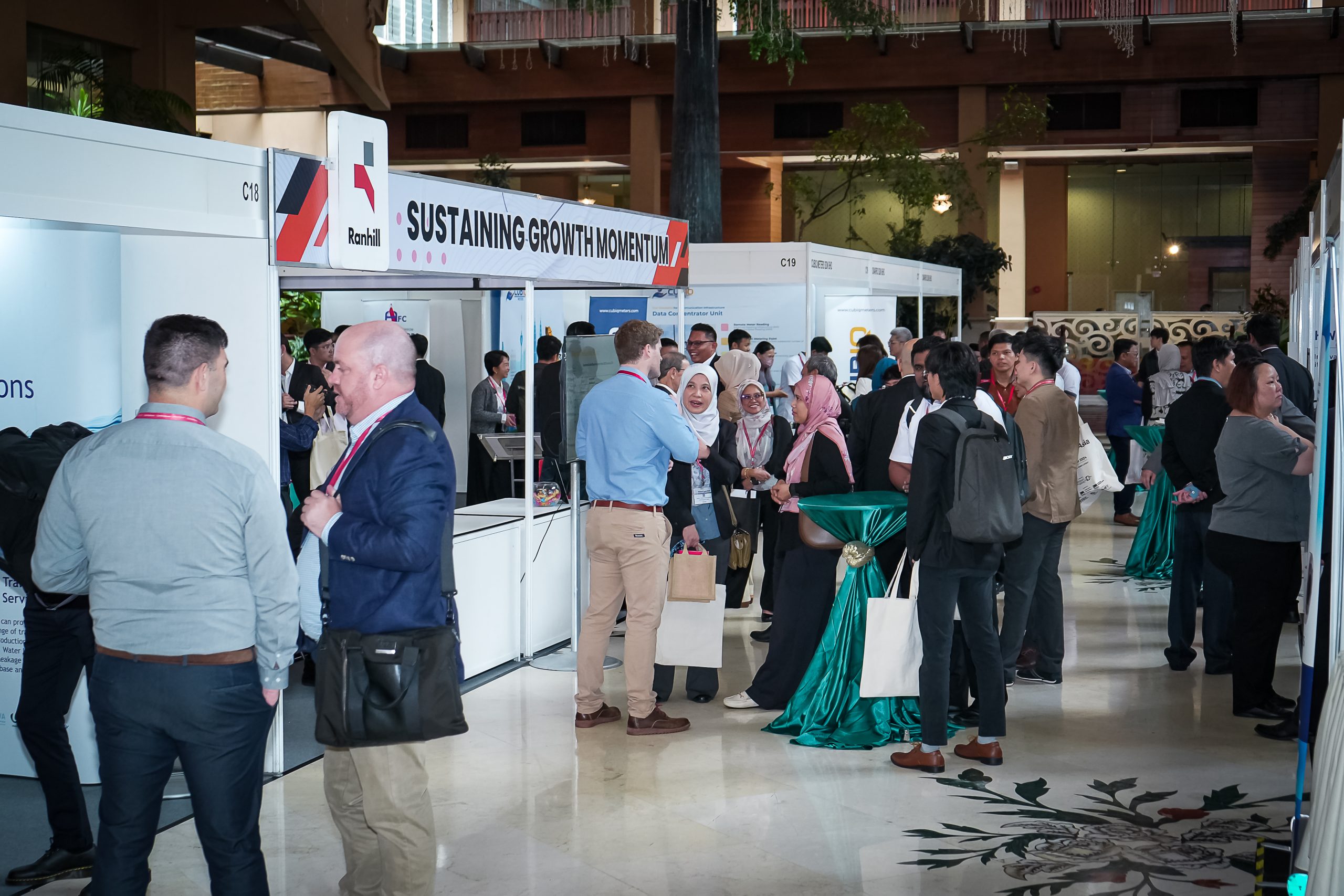Water Loss Asia 2024: Building Solutions for Asia’s Water Crisis and Carbon Footprint Reduction
The recently concluded Water Loss Asia 2024 (WLA 2024), hosted at the Royale Chulan Hotel in Kuala Lumpur, brought together a diverse assembly of over 715 international delegates, experts, policymakers and industry leaders from 21 countries, including Malaysia, Australia, the United Kingdom, Thailand, and Singapore. Themed “Asian Perspectives on Water Loss Management and Carbon Reduction,” this biennial event highlighted the urgent need to tackle water loss and mitigate carbon emissions across Asia, a critical agenda in light of Malaysia’s RM2 (USD0.44) billion annual loss due to non-revenue water (NRW).
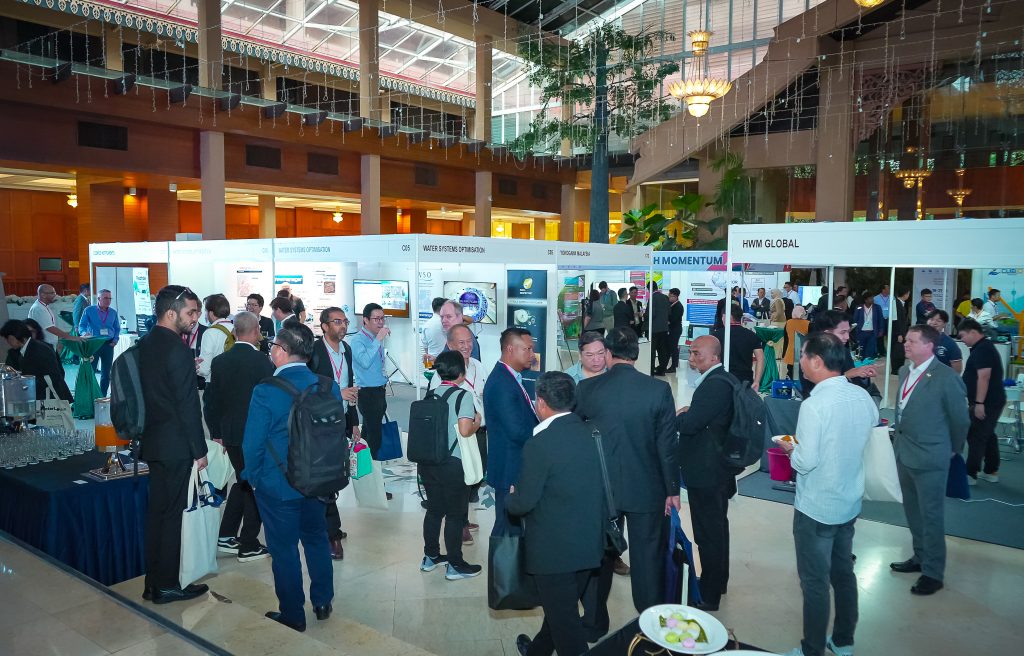
Leadership and Strategic Insights
YAB Dato’ Sri Haji Fadillah bin Haji Yusof, Malaysia’s Deputy Prime Minister and Minister of Energy Transition and Water Transformation, inaugurated the conference, emphasising the Malaysian government’s unwavering commitment to sustainable water management. His opening address underscored the ambitious goal of reducing Malaysia’s non-revenue water (NRW) rate from 37.1% in 2023 to 31% by 2025. Key initiatives to achieve this goal include the Critical Pipe Replacement Programme, a Holistic NRW Solutions approach (Approach 1), and the Proportional Reimbursement Rate strategy (Approach 2). This call to action is pivotal as Malaysia grapples with water losses that not only strain resources but also hinder economic and environmental sustainability.
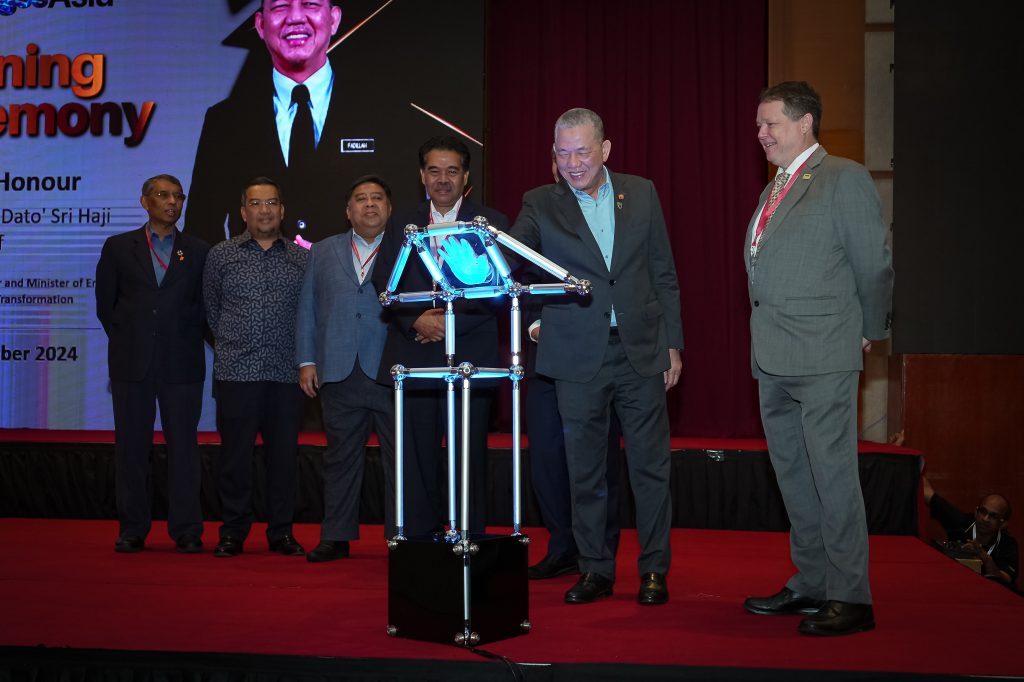
He further elaborated on the Water Transformation Roadmap 2040, also known as AIR 2040, which was officially launched on 29 October 2024. This visionary plan focuses on three strategic pillars: First, creating an efficient water management ecosystem aimed at reducing NRW and ensuring a sustainable water supply for future generations. Second, driving technology development and research in the water industry to foster innovative water management solutions and unlock economic growth opportunities. Third, strengthening Malaysia’s position as a regional hub for water management by 2040, with an appeal to industry leaders to collaborate in establishing Malaysia as a center of excellence in water management, extending its influence across the ASEAN region.
Keynote addresses delivered by industry leaders set a compelling tone for the event. YBhg. Dato’ Ahmad Faizal bin Abdul Rahman, Chief Executive Officer at the National Water Services Commission (SPAN), provided a comprehensive overview of Malaysia’s regulatory framework aimed at enhancing NRW management, reflecting the country’s evolving strategies and regulatory reforms. Gary Wyeth, Secretary of the IWA Water Loss Specialist Group, captivated the audience with his presentation on the “Leakage Emissions Initiative.” His insights into establishing a standardised carbon balance for drinking water utilities spotlighted the critical intersection of water loss management and carbon reduction, a focal point for utilities and policymakers alike.
High-Impact Sessions and Collaborative Forums
The conference’s sessions featured extensive discussions across multiple tracks, addressing critical topics such as Smart Water Networks, Advanced Leak Detection Techniques, Big Data and Analytics for Water Management, NRW Reduction Programmes, and the critical interplay between Carbon Assessment and Water Losses. This multidimensional approach provided attendees with practical, actionable knowledge to adapt innovative water loss strategies tailored to diverse regional challenges.
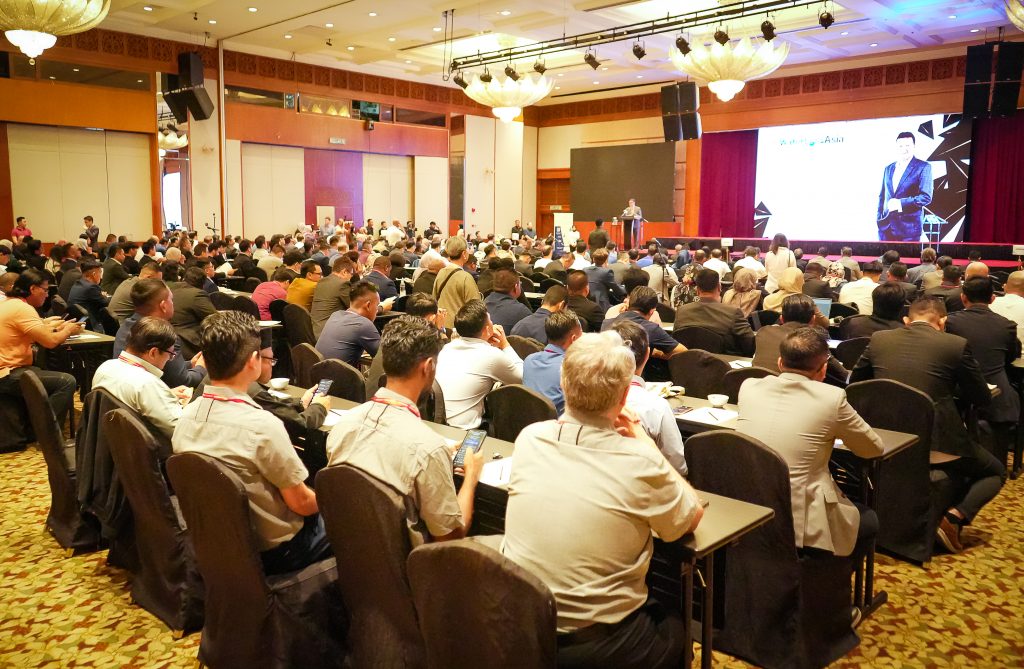
One of the most anticipated sessions was the Panel Discussion on “What Needs to Change to Enable Effective NRW Management in Malaysia.” This session offered a critical examination of Malaysia’s longstanding water loss issues, where significant investments have yet to yield consistent progress in NRW reduction. Panelists, including senior representatives from Ranhill SAJ, Pengurusan Air Selangor, experts from Taiwan and Germany, delved into necessary reforms, innovative technologies, and stakeholder collaboration. The discourse provided a pathway for rethinking and restructuring Malaysia’s NRW reduction strategy through policy, public-private partnerships, and scalable innovation.
Showcasing Innovation in Water Management and Carbon Reduction
Beyond the insightful presentations, WLA 2024 also featured a vibrant exhibition hall. Attendees had the opportunity to explore cutting-edge technologies from leading innovators and solution providers dedicated to minimising water loss and carbon emissions. The exhibition highlighted state-of-the-art tools such as real-time leak detection systems, smart meters, data-driven network monitoring tools and integrated solutions to address the dual challenges of water scarcity and environmental degradation.
The exhibition complemented the conference agenda, facilitating direct engagements, knowledge exchange, and networking among industry players. Exhibitors and participants alike valued the unique opportunities to demonstrate and learn about pioneering solutions that are shaping the future of water management.
Looking Ahead: The Road to Effective Water Loss Management
As Malaysia and other Asian nations strive to meet ambitious targets to reduce water loss and improve carbon management, platforms like Water Loss Asia play a crucial role in fostering meaningful collaboration and knowledge dissemination. The conference highlighted that a multi-pronged approach—encompassing regulatory reform, technological innovation, cross-sector partnerships, and community engagement—is paramount for addressing these pressing challenges.
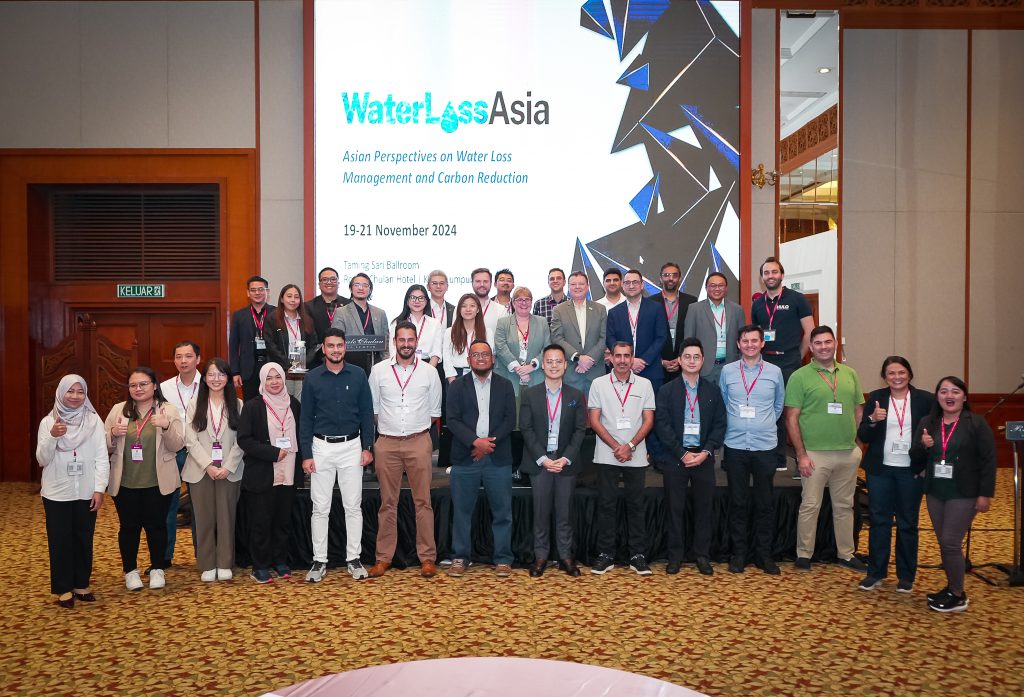
By facilitating dialogues, presenting cutting-edge research, and showcasing viable technologies, WLA 2024 established itself as a cornerstone event that accelerates the transition towards sustainable water resource management and carbon mitigation. As echoed throughout the conference, the stakes are high; yet, with continued collaboration and commitment, the region’s water and carbon challenges are not insurmountable.

